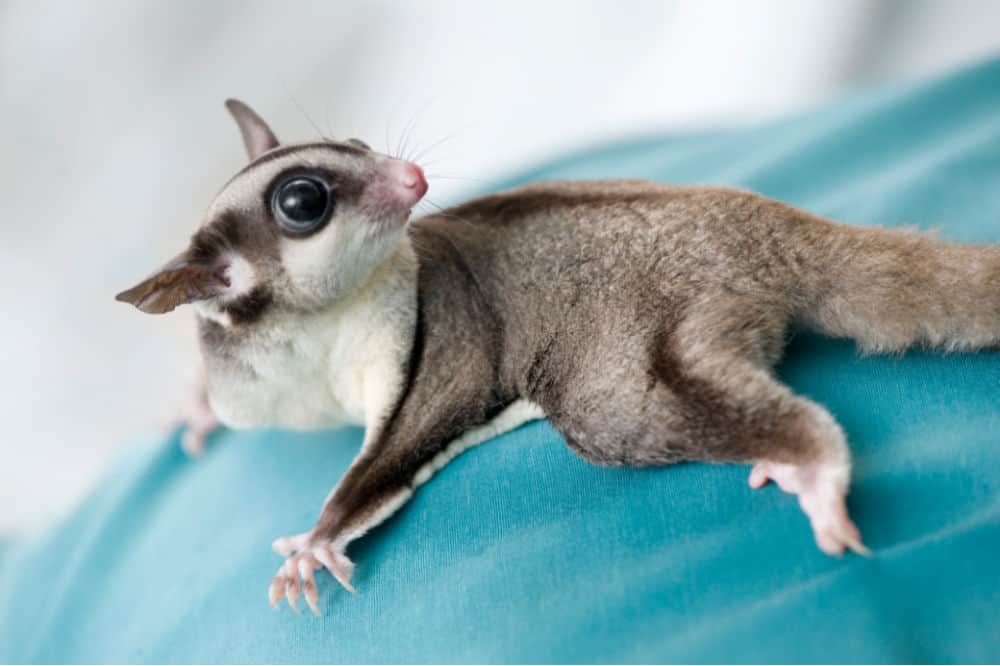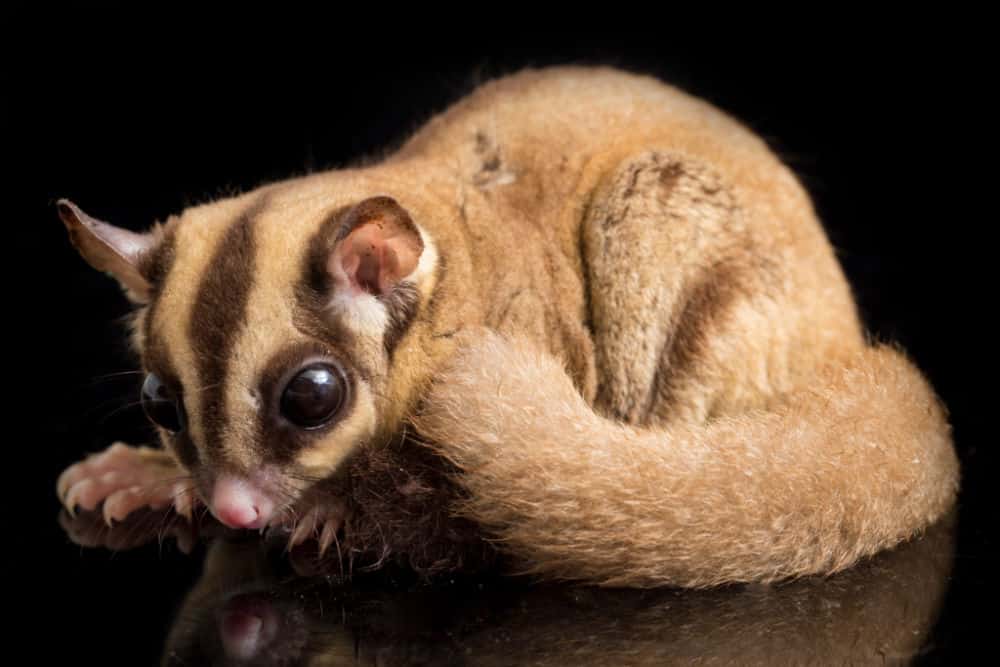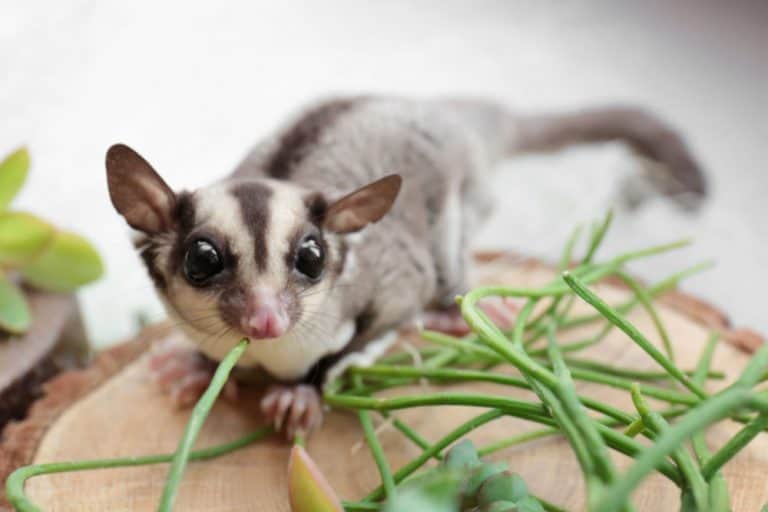Do Sugar Gliders Make Noise? Find Out
If you are asking the question, do sugar gliders make noise? Then you are probably thinking about getting sugar gliders or may already own sugar gliders. Whether or not an animal makes noises or not can be a huge deciding factor when you are choosing what kind of pet to get. It’s always important to be well informed before making any spontaneous decisions, especially when the life of a living being is involved.
Do Sugar Gliders Make Noise?
The simple answer is yes! Sugar gliders are known equally well for their various nocturnal noises and their ability to glide through the air from branch to branch. The noises that sugar gliders make are how they communicate with each other and the world around them.
Pet owners need to recognize whether these noises are something that you can accept and enjoy about your furry little friends; or if these disruptive noises are more than you can handle and might be a deal-breaker.
Understanding the various noises that sugar gliders make is essential to:
- Recognizing why sugar gliders make these nocturnal noises?
- What do they mean?
- How can pet owners effectively deal with their noises?
Sugar gliders can easily live to be 15-20 years old in captivity; that’s a long time to deal with noises that may get on your nerves!
What Sounds Do Sugar Gliders Make?
There are several very distinctive sounds that sugar gliders make that can be clues as to their current temperament.
The most common noises include:
- Crabbing
- Barking
- Hissing
- Chattering
What Do These Sugar Glider Noises Mean?
Crabbing
Crabbing is the most common sound that sugar gliders are known to make. Crabbing is the sound made when a sugar glider is agitated or scared. It is a sort of a screechy, crying baby sound that they will emit repeatedly. The crabbing noise often startles new owners or others who do not expect to hear any noises coming from these adorable little creatures.
Reasons for Crabbing Sugar Gliders
- agitation
- express fear
- warn other sugar gliders or other animals to stay away
- be used as a cry for attention
My own gliders will often crab during the day if I disturb them when they are sleeping. Or when the vacuum gets too close or the dogs bark near them, it will startle them, and they will crab at the offending noisemaker.
Check out this video of a crabbing sugar glider to hear this adorable noise!
Barking
Barking is just what you think it is, a sound that sugar gliders emit that sounds strangely similar to that of a yapping Chihuahua. When new sugar glider owners hear a barking noise coming from their suggies cage, they are quite shocked.
Sugar gliders will bark for a variety of reasons, from boredom to excitement, but you can be sure there is a reason for their barking.
Reasons for Barking Sugar Gliders
- annoyance
- excitement
- a warning call that danger is near to the rest of the colony
- seek out other gliders
- to get the attention of their human caretaker because they are bored or lonely
If your pet sugar gliders are barking because they are bored, eliminate the boredom, and it could stop them from barking. However, if a sugar glider is barking due to some perceived excitement, then the barking will stop when the excitement level subsides.
Check out what a barking sugar glider sounds like…
Hissing
Hissing is heard most often when sugar gliders encounter another sugar glider. There can be several variations of hissing noises, depending on how the encounter goes. It can be a short snake-like hiss or a more repetitive, deliberate hiss. Typically, hissing is the “mildest” of the sugar glider sounds that they make and is how sugar gliders “talk” to one another.
Chattering
Chattering is a sound that sugar gliders make that communicates happiness or a desire for attention. Sometimes chattering is away for them to convey their presence to other sugar gliders in their environment.
This video let you hear crabbing, barking and chattering…
These three types of noises, barking, hissing, and chattering, are heard most often at night.
Other Less Common Sugar Glider Noises
Fighting
Fighting is a mixture of sounds like barking, crabbing, and cage noises from them jumping around and grappling with each other in the cage.
Sneezing
Sneezing noises are made when sugar gliders groom themselves, by spitting into their hands and washing themselves, similar to when cats lick their paw and groom themselves.
Or if it’s wintertime, your sugar glider may be sneezing from a respiratory infection. If this is the case with your sugar glider, you may want to seek advice from your exotic veterinarian.
Clicking or Chirping
Clicking or chirping noises sound like a mixture of chattering teeth and low pitched squeaks, very similar to the purring-chirping noises guinea pigs make when they are happy. These are sound of a happy, content sugar glider and usually made while they enjoy their favorite foods.
Purring
Purring sounds a bit like a cat’s purr or a tiny heartbeat or a small drum beating, fast and low, and is a contented or happy noise.
Crying
Crying is a whining noise made only by joeys or a new pet sugar glider missing its family.
Singing
Singing noises sound like a song, that changes in sounds and pitches, that a female glider sings to her joey to comfort the joey. Singing is a happy or contented type of noise.
Why So Much Noise at Night?
Sugar gliders are nocturnal, meaning that they are most active during the night and will spend most of the day sleeping. Wild sugar gliders will spend the majority of their days sleeping and resting, and then once it gets dark, they come alive.
Even their large eyes that give them such a sweet countenance allows them to navigate the dark landscape and nighttime world and their preference for night time activities.
These nocturnal activities continue even with domesticated sugar gliders, which is why it is most common to hear these noises at nighttime.
And it is especially true if a sugar glider is all alone, bored, seeking attention, or even when multiple sugar gliders are together.
Nighttime is the beginning of a “brand new day” for sugar gliders, and their nightly noises are indicative of their very busy day.

How to Deal with the Nightly Noise?
For most pet owners, the nightly noises that their pet sugar gliders make are tolerable and may even be considered cute and endearing. However, for others, it can be disruptive and quite unbearable to deal with each night.
The nightly noises that sugar gliders make are often part of the package when owning these adorable pets, but there are a few helpful tips.
- Since sugar gliders are nocturnal and often do make noises at night, it is recommended that you DO NOT put the cage in a bedroom or within earshot of where people will be sleeping.
- Ensuring that your sugar glider is comfortable in its new home environment is probably the best way to stop or avoid some of the more abrasive noises that sugar gliders make, such as crabbing and barking.
- Some of these noises are just a common thing that they do, and they don’t necessarily make these noises every night. It’s also much less common when they have a buddy. As for what to do about this noisemaking, I believe it is generally better to ignore them instead of rushing into them every time or giving them a treat because that reinforces the behavior (when I bark, mom comes!)
- However, if you have a single lone glider or the barking continues for an excessive length of time, it’s a better idea to check in on them and or maybe even have a bit of playtime. If the barking seems very loud and frequent, I would definitely check to ensure they are all ok!
The hissing and chattering often occur because the sugar glider tries to communicate with another sugar glider or get attention from their human. These happy noises should be an expected trait of sugar gliders before you ever bring them home.
Final thoughts…
Ultimately, making noises at night is part of a sugar glider’s charm and nocturnal essence. The nightly noises that sugar gliders make are who they are, and they need to be understood, acknowledged, and accepted when you decide to get sugar gliders as a pet.
It’s up to you in what you can tolerate in a pet. If sugar gliders make too much noise for your liking, it’s better to opt for a different kind of pet that is quieter and better suited for you and your lifestyle.



